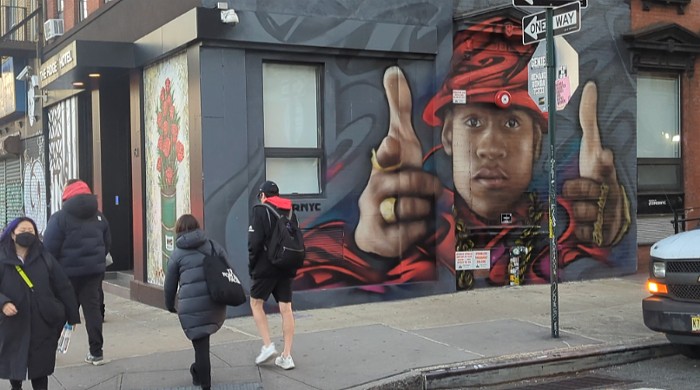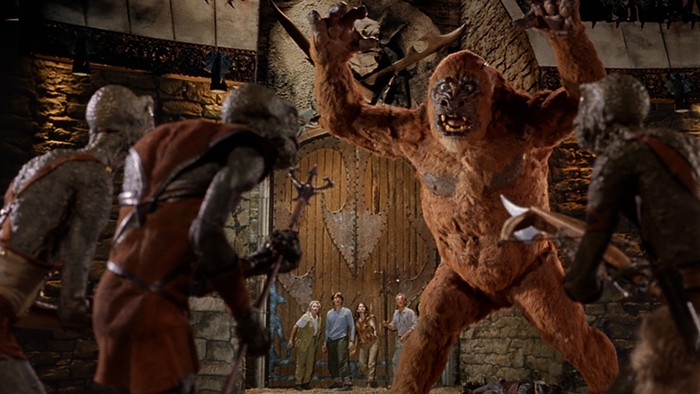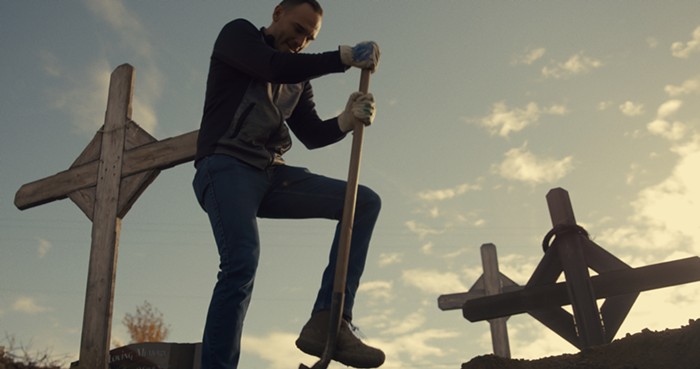
Sex! Murder! Cults! Nymphomaniacs! Ninjas! Demon babies! Aliens! The sitcom Soap, which ran from 1977 to 1981, managed to parody just about every soap opera trope at some point in its run.
Not surprisingly, it often proved controversial. And like a juicy soap opera, that controversy made for some extremely surprising bedfellows — especially when it came to one of the show’s most divisive elements, the gay character.
Billy Crystal played Jodie, the gay son of one of the show’s main characters. And in the summer of 1977, the character caused a nationwide outcry. On one side were anti-gay activists, hellbent on wrestling control of the airwaves away from the networks. On the other side were gay activists, terrified that the show would paint a target on the queer community. And the only thing they could agree on: Soap was a show that could never be allowed to air.
But lucky for us, it did.
The saga started in the fall of 1976, when ABC announced that it was developing a new sitcom that would parody soap opera tropes. Its creators were some recognized — though not always successful — young TV talents, producers Tony Thomas and Paul Witt, along with a writer named Susan Harris.
Tony and Paul had worked on a few not-entirely-beloved shows like Here Come the Brides (set in Seattle!) and Occasional Wife, and a few TV movies like Satan’s Triangle. Susan, a divorced mom, had started freelance-writing for TV to support herself and her two-year-old son Sam. The three of them met in the 1960s, realized they had an excellent rapport, and decided to try to cook up a TV series of their own that they could control.
Their first attempt, Fay, was a sort of Mary Tyler Moore but with more of a social edge. There was heavy network interference, and it only lasted a few weeks. Susan, furious, delivered a profanity-laced speech to the NBC executive responsible, and then got to work on a new show for ABC.
Soap was to be an ongoing story — unheard of for a primetime sitcom back then — with a traditional studio audience, blended with Susan’s talent for finding comedy in serious topics. It had barely been announced when Newsweek ran an exposé on the show, accusing it of being “impure” and full of dirty jokes. Nobody had even seen the show yet — the final cast wasn’t even in place — but this set off a tidal wave of discourse in the spring of 1977.
Like this about gay TV history post? Read more:
What Happened When Gomer Pyle Married Rock Hudson The Story Behind the Gayest Week in TV History How Barney Miller’s Gays Defeated ABC’s Network Censors Why Do Gays Love The Golden Girls? Rita Moreno vs Hollywood: The Other West Side Story Rumble How M*A*S*H Predicted the Rise and Fall of Don't Ask, Don't Tell What Makes Disney Villains So Gay? The Gay Magic of The Nanny The Straightening of Chandler Bing How Bewitched Went Gay Without Ever Saying "Gay"
Two main groups emerged as the opponents to the show. There were religious extremists, primarily whipped up into a frenzy by a Mississippi preacher named Donald Wildmon. Donald had been an obscure nobody for most of his life, and writes in his autobiography that he was “bored” and felt like a “monkey in a cage” with his small congregation. But he discovered that by making a big show of outrage over sex and violence on TV, he could drum up attention for himself. So that’s what he did in 1977: He created an organization to criticize TV networks, and organized a “turn off the TV” week to try to rally his followers. People listened; he soon had a small but active following, fueled by moral panic.
The other group opposed to Soap were gay activists, who had heard that the show would include a gay character. Queer depictions on TV tended to be pretty negative back then, and activists feared that a gay main character would reinforce negative stereotypes and cement queer people as objects of contempt in viewers’ minds. This wasn’t a hypothetical fear; at the same time that Soap was in production, Anita Bryant whipped Miami voters into a frenzy with a campaign opposing civil rights protections for queer people. Bryant’s TV commercials depicted gays and lewd and menacing, and persuaded Miami to overturn a gay rights ordinance. Activists were terrified that Soap would play right into her hands with future campaigns across the country.
ABC did what it could to quell the backlash (as documented extensively in the book Soap by A. S. Berman). The network arranged screenings of the show’s pilot with local stations — but that backfired, with some station managers declaring they could never put the show on the air. ABC ordered changes and reshoots, and pleaded with the public to just wait until the show aired and everyone could see it for themselves.
And so, in September of 1977, America finally got its first glimpse of Soap. It was, as promised, far more frank about sex than most other shows of the time — but the language wasn’t gratuitously dirty, as church groups had feared. And the gay character wasn’t as offensive as gay groups had feared. The critics cautiously accepted that Soap wasn’t as bad as they’d predicted.
But behind the scenes, trouble was brewing over the character of the gay son, Jodie. Actor Billy Crystal was concerned that Jodie had no depth, and played into easy stereotypes. What’s worse, he could see that audiences were starting to react negatively to Jodie — when the character talked about loving a man, he could hear people laughing uncomfortably in the audience. He was harassed in public for the role. Something was definitely going wrong with the character.
So Billy approached writer Susan Harris and asked to deepen Jodie’s depiction, and she agreed — which is how the show wound up with television’s most complex depictions of a queer person to date. Over the first season, audiences saw Jodie go through a tragic breakup and suicide attempt in a moving storyline that shifted him from a punchline to a sympathetic hero. Over the next few years, he’d explore relationships with women, have a child, and then have his fitness as a parent questioned by other characters because he was gay. (Though Jodie had relationship with women, he almost always identified as “gay” or “homosexual.”)
In his most dramatic storyline, Jodie is forced to go to court to prove that he should retain custody of his daughter. At the time, it was unheard of for a queer parent to be awarded custody over a straight parent. But in a survey of viewers, Soap’s audience voted three to one that Jodie should be allowed to keep his daughter. And in the show’s final season, a judge agrees, declaring that a gay man can indeed be a capable parent.
Many of the barriers that Soap broke are simply facts of life that we easily accept today: A gay son; fluid gender identities and sexual orientations; queer parenting. But for many Americans, Soap was the first time that such issues had ever been brought to their attention. What seemed like it could have been a disaster for queer representation turned out to be a groundbreaking, overwhelming success story.



















